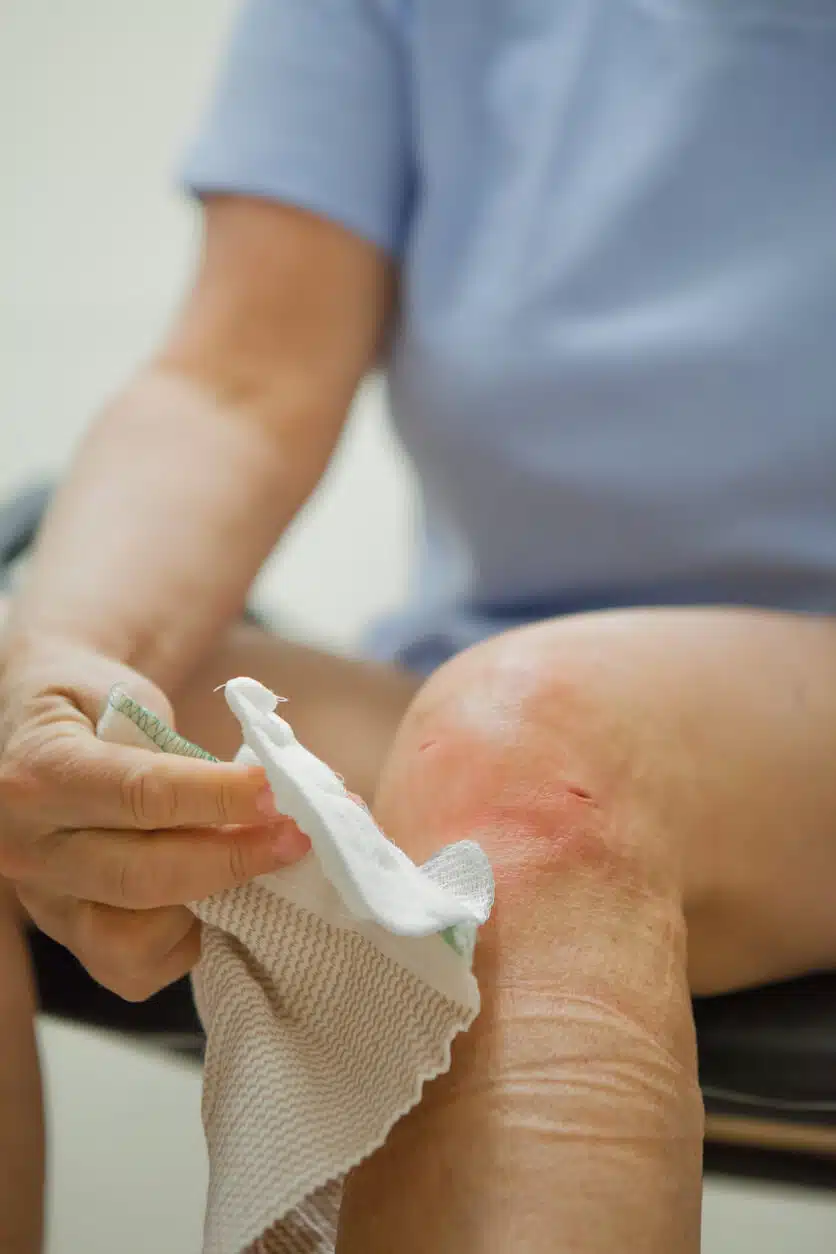
Arthroscopic knee surgery is a minimally invasive surgical procedure performed to diagnose and treat knee conditions. The doctor uses a special tool with a small camera to visualize the knee joint and make repairs to restore function and relieve knee pain.
If you’re scheduled for arthroscopic knee surgery, your orthopedic care team can help you prepare for the day of surgery. Here’s generally what you can expect before arthroscopic knee surgery in terms of preparation and planning.
Purposes of Arthroscopic Knee Surgery
Your orthopedic surgeon may perform arthroscopic knee surgery for the following:
- Diagnostic Arthroscopy – To examine the interior of the knee joint to diagnose various conditions and injuries.
- Meniscectomy – To remove a torn or damaged meniscus, which is the cartilage that cushions the knee joint.
- Meniscal Repair – In cases where the meniscus is repairable, surgeons may perform a meniscal repair by suturing or stitching the torn meniscus together. This aims to preserve the function and stability of the knee joint.
- Ligament Reconstruction – To reconstruct a torn ligament, such as the anterior cruciate ligament (ACL) or the posterior cruciate ligament (PCL).
- Synovectomy – To remove inflamed or damaged synovial tissue from the knee joint.
Preparation and Planning Before Arthroscopic Knee Surgery
Before your surgery, you’ll have a consultation with your orthopedic surgeon. During this visit, you’ll discuss your symptoms and medical history. The doctor will also perform a physical examination of your knee and conduct imaging tests, such as X-rays or MRI scans.
Preparing for your arthroscopic surgery involves several important steps to ensure a successful outcome and make your recovery smoother.
Home Preparation
Prior to your surgery, make your home safer for post-surgical recovery by removing potential tripping hazards such as rugs and clutter. Consider placing frequently used items on the main floor to minimize the need for climbing stairs.
Preoperative Physical Exam
Schedule a preoperative physical exam with your primary care physician to ensure you’re in good health for the procedure. Discuss any existing medical conditions that might pose complications during or after surgery. Your doctor may order additional tests like an electrocardiogram (ECG) and blood work.
Medication Adjustment
Follow your doctor’s advice regarding medications that could contribute to prolonged bleeding. You may need to stop taking certain medications, including aspirin and anticoagulants at least a week before surgery. Consult your doctor for specific instructions on which medications to stop taking.
Lifestyle Factors
If you smoke, consider quitting before surgery, as nicotine increases the risk of complications and delays healing. Additionally, if you’re overweight or obese, try to lose weight before the procedure to reduce stress on the joint and aid in recovery.
Dental Work
If you require dental work, it’s advisable to schedule it before your knee arthroscopy to minimize the risk of infection in the joint.
Avoiding Injuries
To prevent complications, avoid activities that could lead to injuries or traumato the knee prior to your procedure. Issues such as sunburns and cuts can cause possible complications, too.
Fasting Prior to Surgery and Dressing on the Day of Surgery
Follow fasting instructions provided by your doctor, usually starting from midnight before the procedure. Wear loose clothing, like gym shorts, on the day of surgery for easier dressing afterward.
Pre-Surgery Hygiene
Take a bath or shower before your surgery, but avoid applying body lotion or deodorant. Also, refrain from shaving the surgical site yourself. Use any special soap provided by your doctor to clean the knee and the surrounding area on the morning of the procedure.
Jewelry, Contacts, and Transportation
Remove all jewelry and take out contact lenses before the surgery. Arrange for transportation to and from the procedure, as you will not be able to drive yourself home. Narcotic pain medications may impair judgment and driving ability, so follow your doctor’s instructions regarding driving restrictions.
Mental and Emotional Preparation
Preparing mentally and emotionally for your arthroscopic knee surgery can contribute to a smoother recovery process:
- Educate Yourself – Learn about the surgery, including the procedure itself and expected outcomes. Managing expectations is important for knee arthroscopy patients.
- Ask Questions – Don’t hesitate to ask your orthopedic surgeon any questions before the scheduled surgery. They are available to provide support and guidance throughout the process.
- Support System – Reach out to friends and family for emotional support during your recovery. Having someone to talk to and assist you can make a significant difference in your overall well-being.
- Positive Mindset – Maintain a positive mindset and visualize a successful recovery. Optimism can also help you through your recovery period.
By understanding what to expect and planning accordingly, you can set yourself up for a smooth surgical experience and a successful recovery.
Arthroscopic Knee Surgery in North Dakota
Arthroscopic procedures should only be performed by a qualified surgeon. The board-certified orthopedic surgeons at The Bone & Joint Center are fellowship trained in arthroscopic knee surgery.
We will determine if you are a good candidate for this cutting-edge procedure and be with you every step of the way. Our friendly team values your health and safety.
To schedule an appointment, call our office today at (701) 946-7400 / (866) 900-8650 or use our online request form. We look forward to offering you the latest and greatest in orthopedic care.

